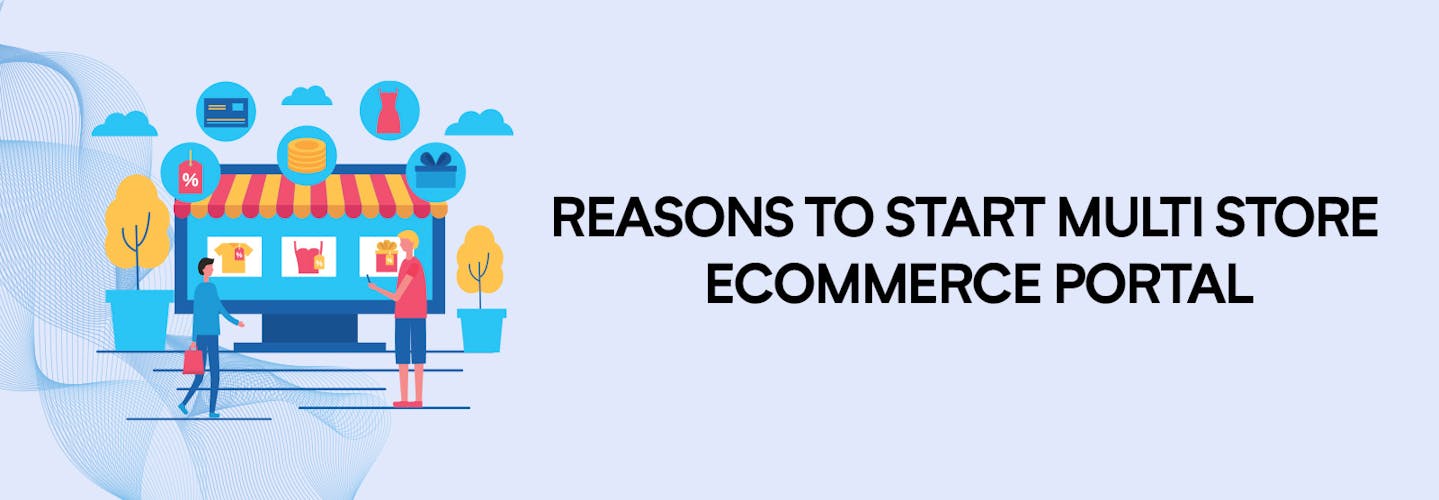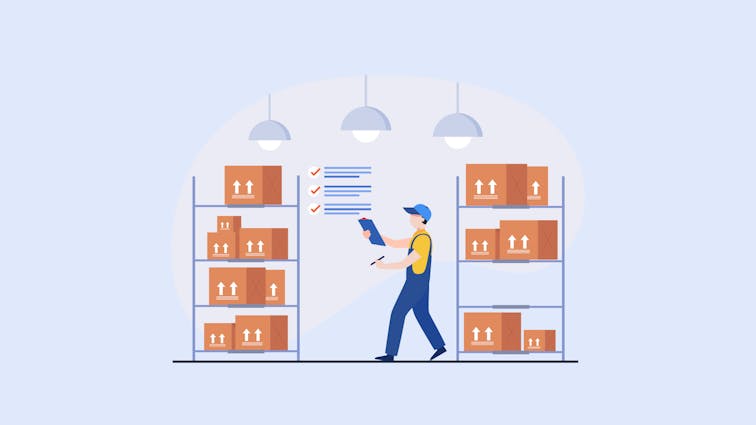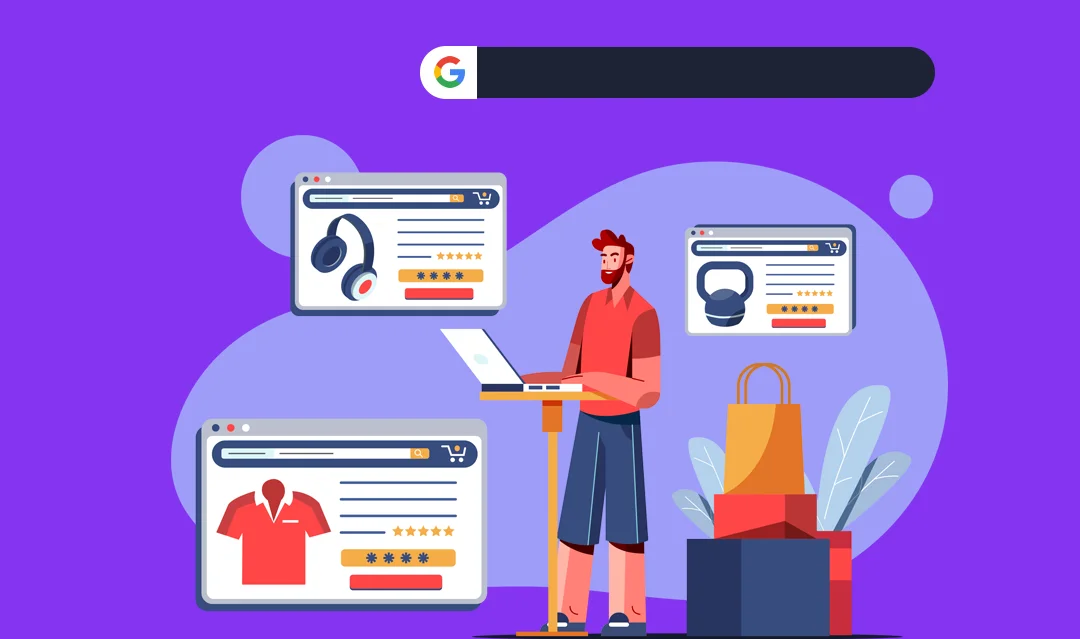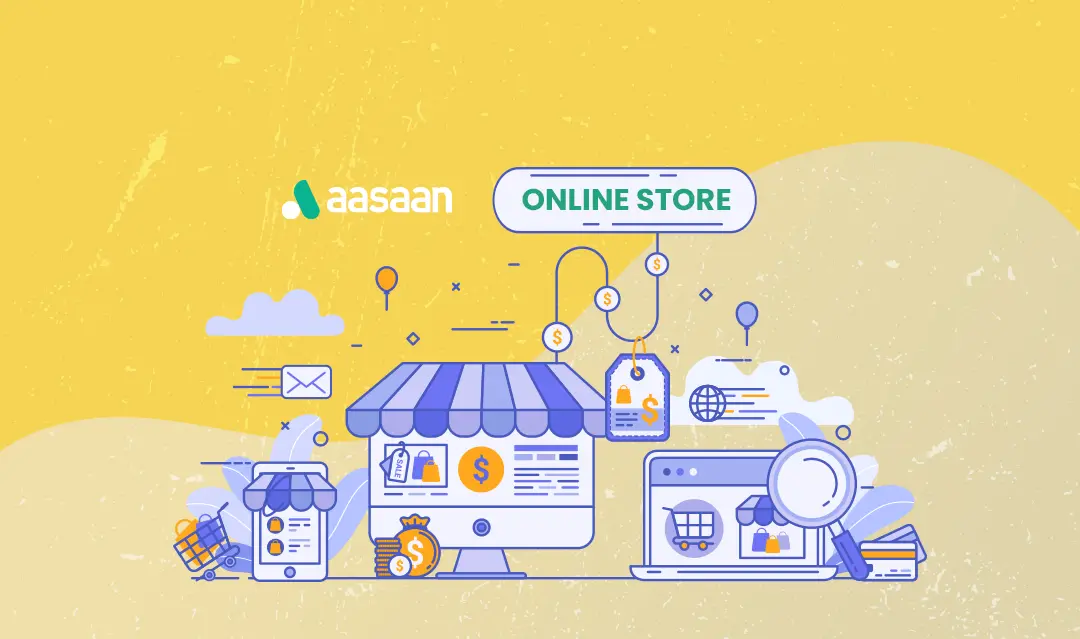
8 Reasons Why You Should Begin Your Multi-Store E-Commerce Platform Today
The world of e-commerce has seen significant growth in recent years, with more and more businesses opting to sell their products and services online.
With the rise of e-commerce, the need for efficient and effective platforms to handle multiple online stores has become increasingly important.
That’s where multi-store e-commerce platforms come in.
What is Multi-Store E-Commerce Portal ?
A multi-store e-commerce portal is a platform that allows businesses to manage multiple online stores from a single central location.
It essentially acts as a one-stop-shop for everything related to running an e-commerce business, including inventory management, order fulfillment, marketing campaigns, and much more.
Multi-store e-commerce builders are designed to help businesses streamline their operations by providing them with a centralized platform from which they can manage all aspects of their online stores.
With a multi-store portal, business owners can easily add new stores or marketplaces without having to worry about managing separate systems for each site.
Importance of E-Commerce builders in Today’s Business World
In today’s fast-paced business world, having an efficient and effective e-commerce platform is crucial for success.
Consumers are increasingly turning to online shopping as their preferred method of purchasing goods and services, making it essential for businesses to have an effective online presence.
Multi-store e-commerce builders offer numerous benefits that make them an attractive option for businesses looking to expand their online reach.
From increased revenue generation to improved customer experience, there are many reasons why companies should consider adopting this innovative solution.
In the following sections of this article we will explore 8 compelling reasons why you should start your own multi store e-commerce platform right away!
8 Reasons To Start Your Multi Store E-Commerce Platform Right Away
1. Increased Revenue Generation

Multiple stores mean multiple revenue streams
Starting a multi-store e-commerce portal can significantly increase your revenue generation. Having multiple stores means you have multiple revenue streams.
This allows you to sell more products and services to a larger audience, which ultimately leads to increased profits. By opening additional stores, you can increase your customer base and tap into new markets.
For example, if you own a clothing store, expanding into different niches such as sports or formal wear can attract new customers who may not have shopped with you before. The more diverse your product offerings are, the more potential revenue streams you will have.
Ability to target different markets and demographics
Another significant advantage of having a multi-store e-commerce solution is the ability to target different markets and demographics.
With each store catering to a specific audience, you can create personalized shopping experiences for your customers that resonate with them.
For example, if one of your stores caters specifically to women’s fashion while another targets men’s fashion, this gives you the opportunity to tailor your marketing strategies accordingly.
You could run specific campaigns for each store or offer discounts on certain products based on customer preferences.
By targeting specific markets and demographics with each store, not only do you increase your chances of making sales but also build brand loyalty among customers who feel that they are being catered to personally.
In addition, having multiple stores allows for greater flexibility in pricing strategies. You can experiment with different pricing models across the various stores based on market demands and consumer behavior.
This enables better decision-making in terms of setting optimal prices that balance profitability with affordability for customers.
Ultimately, by targeting different markets and demographics across multiple stores, businesses open up new avenues for revenue generation while strengthening their brand presence online.
Read More : 10 Best Multichannel Ecommerce Software to Boost Your Sales in 2023
2. The Cost-Effective Solution

Reduced Overhead Costs with a Single Platform for Multiple Stores
One of the most significant advantages of using a multi-store e-commerce portal is reduced overhead costs.
With a single platform, you can manage multiple stores without incurring additional expenses that come with operating them independently.
For instance, setting up individual stores would require you to purchase and maintain separate server space, hire IT staff to manage each site, and pay for domain registration fees.
However, with a multi-store e-commerce solution, all these tasks are centralized into one platform, easing the burden on your pocket.
This way, you can focus on other aspects of your business and save money that would have otherwise been used to maintain different stores.
Lower Maintenance and Development Costs
Another advantage of using a multi store e-commerce platforms are lower maintenance and development costs.
Since all your stores are hosted within one platform, any updates or fixes made apply across all your stores simultaneously.
In contrast, if you had several independent stores to manage individually, it would require more time and resources to update each store accordingly.
Besides saving you time and effort in maintaining each store separately, using a multi-store e-commerce platforms also saves on development costs.
Developing individual sites requires coding from scratch or purchasing pre-made templates which can be expensive.
On the other hand, creating one comprehensive website such as an online mall can be less costly than developing several smaller websites.
Moreover, having all your brands under one roof makes it easier for cross-selling products from different brands in the same package deal or promotion which eventually results in more revenue generated for your business.
3. Improved Customer Experience

In today’s digital world, customers expect a seamless shopping experience. Multi store e-commerce solutions can help provide just that by offering personalized shopping experiences, easy navigation, and search functionality.
Personalized Shopping Experiences for Customers
Personalization is key in modern e-commerce. With a multi-store e-commerce portal, you can customize the shopping experience for each customer by recommending products based on their browsing and purchase history.
This not only improves customer retention but also boosts sales as customers are more likely to make purchases when they feel understood and catered to.
Moreover, it allow customers to create wishlists and save items for later purchase.
This feature enhances the customer experience as it provides an easy way for users to keep track of products they are interested in buying, without having to go through the entire catalog all over again.
Easy Navigation
With multiple stores under one platform, it can be challenging for customers to navigate through the site and find what they are looking for.
However, with proper categorization and search functionality, it is easier than ever before.
Multi-store e-commerce platforms have enhanced search engines that allow users to filter their searches by category, price range or even color creating a more efficient user experience.
Also important is clear organization of product categories with visible labels or icons so customers can quickly locate what they want without having to dig through pages of irrelevant information.
Search Functionality
The importance of easy-to-use search functionality cannot be overstressed when it comes to increasing conversions on an online store. Customers expect fast results with accurate suggestions based on their queries.
Multi-store platforms offer advanced search algorithms that use predictive text capability improving search accuracy so shoppers can easily find what they need faster than ever before.
Additionally, you may choose from various filters such as size or color which make navigating through an extensive catalog a breeze.
The Importance of Customer Experience
Providing excellent customer experience is key to any successful business, and this is particularly true for e-commerce.
Customers who have positive experiences are more likely to become repeat customers and even refer friends and family than those with negative ones.
Multi-store e-commerce portals offer businesses the ability to personalize the customer experience through product recommendations, personalized offers, wishlists, and easy-to-use search functionality.
As a result, customers are more likely to return for future purchases when they receive such tailored experiences.
Multi-store e-commerce solutions have revolutionized the way businesses interact with their customers, providing a more efficient shopping environment with personalized recommendations and easy-to-navigate interfaces.
These platforms are necessary tools for businesses looking to provide exceptional customer experience while increasing sales volume at the same time.
Read More: Multi-Store Ecommerce: Why Customers Love It
4. Better Inventory Management

When it comes to managing an e-commerce business, inventory management is a critical factor that can determine the success or failure of your operations.
With a multi-store e-commerce portal, you have the advantage of better inventory management through centralized inventory control and real-time inventory tracking across all stores. Let’s explore the benefits in more detail:
Centralized Inventory Management System
With multiple stores, it can be challenging to keep track of your inventory without a centralized system.
By using a multi-store e-commerce platforms, you can manage all your inventories from one place. This feature allows you to keep track of stock levels for each product and location easily, which means fewer stockouts or overselling issues.
A centralized inventory management system also minimizes the risk of human error and ensures consistency across all stores and marketplaces. You will be able to make informed decisions about stock ordering based on demand trends across all locations.
Real-Time Inventory Tracking Across All Stores
Not having real-time visibility into your inventory levels can lead to lost sales opportunities, unhappy customers, and increased expenses related to returns and refunds.
Real-time inventory tracking enables you to have up-to-date information on stock levels at any given moment across all stores.
This feature helps prevent overselling by automatically updating stock levels on different storefronts as soon as sales are made in any other store or marketplace integrated with your multi-store e-commerce portal.
Benefits of Better Inventory Management: Improved Customer Satisfaction & Higher Profits
Better inventory management has a direct impact on customer satisfaction and profitability. With accurate real-time data on hand, you’ll be able to make informed decisions that reduce costs associated with overstocking or understocking products.
In addition, inventory management plays a crucial role in fulfilling orders and meeting customer expectations.
By identifying trends and forecasting demand, you can make sure your inventory is always available when customers need it, increasing the likelihood of repeat business and higher profits.
Read More: Maximizing Your Sales Strategies with Multichannel Ecommerce: A Comprehensive Guide
5. Enhanced Marketing Opportunities

Targeted marketing campaigns for each store
One of the biggest advantages of a multi-store ecommerce portal is the ability to create targeted marketing campaigns for each store.
By having separate stores for different products or target audiences, you can create tailored campaigns that speak directly to their needs and interests.
This allows you to achieve higher conversion rates, as customers are more likely to make a purchase when they feel like the product is specifically meant for them.
For example, if you have a store that sells athletic gear and another store that sells formal wear, you can create very different marketing campaigns for each one.
The athletic gear store might focus on high-energy images and language that speaks to the active lifestyle of its target audience.
Meanwhile, the formal wear store might use more elegant imagery and sophisticated language that appeals to those looking for upscale clothing options.
Cross-promotion between stores
Another benefit of a multi-store e-commerce store is the ability to cross-promote between stores.
This means promoting products from one store on another store’s site, either through banners or links in product descriptions. By doing this, you can expose customers to products they may not have otherwise seen or considered purchasing.
For example, if someone is browsing through your formal wear store looking for a new dress shirt, you could display an ad on that page promoting your athletic gear store’s line of performance fabrics.
This cross-promotion could lead to increased sales in both stores and help build brand loyalty among customers who appreciate the convenience and variety offered by your multi-store setup.
In addition to increasing sales, cross-promotion also helps build awareness about all of your brand’s offerings.
By seeing all of your different stores in one place, customers will be more likely to think of your brand first when they need something in any of those categories.
Creating an overall brand message
When creating marketing campaigns for your multi-store e-commerce portal, it’s important to keep an overall brand message in mind.
While each store will have its own unique marketing approach, all of them should still feel like part of the same brand family.
This means incorporating consistent branding elements like logos, colors, and typography across all of your stores.
It also means ensuring that the messaging in each store is aligned with your overall brand values and mission statement.
By doing this, you’ll create a cohesive and recognizable brand identity that customers will associate with quality products and services.
This is essential for building long-term customer loyalty and making your multi-store e-commerce portal a success.
Data-driven decision making
One advantage of a multi-store e-commerce portal is the ability to collect data from multiple sources. This includes metrics on site traffic, customer demographics, purchase history, and more.
By analyzing this data through tools like Google Analytics or Hubspot CRM, you can make data-driven decisions about how to improve your marketing efforts.
For example, if you notice that one store is consistently getting more traffic than others, you could invest more heavily in marketing efforts for that particular store.
Alternatively, if you notice that a certain demographic group isn’t engaging with one of your stores as much as expected, you could try adjusting the messaging or product offerings in that store to better appeal to their needs.
By using data to guide your decision-making process when it comes to marketing campaigns for each store within your multi-store e-commerce portal setup, you’ll be able to maximize results and achieve greater ROI on your advertising spend.
The future of retail
The concept of multi-store e-commerce portals is still relatively new in the world of retail.
However, we can expect it to become increasingly popular as brands look for ways to differentiate themselves from competitors while offering more convenience and variety for customers.
As technological advancements continue to make it easier to manage multiple stores from a single platform, we can expect to see more and more companies adopting this innovative approach.
By staying ahead of the curve and investing in a multi-store e-commerce portal of your own, you’ll be able to position your brand as a leader in the industry and build stronger relationships with customers over time.
6. Streamlined Order Fulfillment Process

The order fulfillment process is a critical aspect of any e-commerce business. It involves receiving, processing, and delivering orders to customers efficiently.
A streamlined order fulfillment process is essential for ensuring customer satisfaction and repeat business. Multi-store e-commerce portals offer several features that streamline the order fulfillment process.
Centralized Order Management System
A centralized order management system enables you to manage orders from all your stores in one place.
This feature allows you to view, track, and manage all your orders from a single platform. With a centralized order management system, you can easily fulfill customer orders without needing to switch between different platforms or manage separate inventories for each store.
You can set up automated workflows that trigger actions like inventory updates, shipping notifications, and delivery tracking once an order has been placed.
This automation saves time by eliminating manual tasks like data entry and reduces the risk of errors in the fulfillment process.
Efficient Shipping and Delivery Process
The shipping and delivery process can be complex, especially when running multiple stores.
However, multi-store e-commerce portals simplify this process by offering several features that help optimize shipping and delivery times.
You can choose from various shipping carriers based on factors like cost or speed of delivery. Some portals even offer discounted rates from popular carriers like UPS or FedEx.
With real-time tracking updates available on these portals, you can keep customers informed about their package’s status throughout the entire shipping process.
Besides tracking capabilities, some multi-store e-commerce portals also provide tools like address validation to ensure accurate delivery addresses while also streamlining the printing of labels or invoices.
Customer Service Integration
An excellent way to improve your customer’s experience with your store is through perfect cooperation between your order fulfillment and customer service teams.
Multi-store e-commerce portals with an integrated customer service system can help streamline the process and ensure prompt resolution of issues. With a centralized system, customer service agents can view all orders in one place.
They can respond to customers’ inquiries faster by having access to the most current order information, including tracking numbers, delivery status updates, shipping address information, or payment processing details.
By integrating your customer service team with your order fulfillment process, you can improve the overall customer experience for all your stores.
7. Increased Brand Awareness

Multi-store e-commerce portal helps to build brand recognition
In today’s world, where most businesses operate online, building brand recognition is crucial.
With a multi-store e-commerce portal, you can easily showcase your products across multiple platforms, making it easier for potential customers to find and recognize your brand.
By having multiple stores under one platform, you can benefit from the complementary nature of your products by promoting them together. This cross-promotion can help increase visibility and awareness of your brand.
Moreover, a multi-store e-commerce portal provides you with the freedom to customize each store to its target audience while maintaining consistent branding across all stores.
This means you can tailor the design and messaging of each store according to specific customer segments or target markets while still maintaining a cohesive look that reinforces your brand identity.
Ability to showcase products across multiple platforms
A significant advantage of having a multi-store e-commerce portal is the ability to showcase products across multiple platforms.
For example, you could have one store on Amazon Marketplace while running another on eBay or even on social media channels like Facebook Marketplace or Instagram Shopping.
By doing this, you’re not only expanding your reach but also increasing the likelihood of being discovered by potential customers who might not have otherwise come across your products.
Additionally, having different storefronts can help tailor content and product offerings specifically for each site’s audience or demographic - something that would be more challenging if trying to maintain one central storefront across all channels.
Furthermore, with a unified inventory management system in place for all stores under the same platform, managing product information becomes much easier and more efficient.
This ensures that customers are presented with accurate information about merchandise no matter which store they visit- resulting in increased trust in your brand.
Building an online presence isn’t just about selling goods but creating an experience that connects with people emotionally.
Therefore, the increased brand awareness and recognition that come with a multi-store e-commerce portal can benefit your business in more ways than just boosting sales.
By utilizing the various storefronts under one platform to showcase your products, you will be able to reach a wider audience and build a stronger online presence for your brand.
Read More: How to Do Social Media Marketing for Small Business: Step-by-Step Guide
8. Competitive Advantage

Multi-store ecommerce portals are still a relatively new concept
The concept of multi-store ecommerce store is still a relatively new one, and not all businesses have adopted it yet.
By incorporating this innovative solution into your business model, you are giving yourself a competitive advantage over those who have not yet embraced the concept. Consumers today are looking for convenience and ease of shopping.
By having multiple stores on one platform, you are making it easier for customers to find what they need without having to navigate from site to site.
This is something that sets your business apart from your competitors — by allowing customers to have a seamless shopping experience across different stores, you’re providing them with the convenience they crave.
But it’s not just about providing convenience — multi-store e-commerce portals also allow businesses to streamline their operations, making them more efficient and cost-effective.
By adopting this innovative solution, you’re positioning yourself as a trailblazer in the industry and showing your customers that you’re willing to go above and beyond in order to meet their needs.
Read More: Why Aasaan Is The Best Multi-store Ecommerce Solution For Your Business
Stay ahead of the competition by adopting this innovative solution
As with any new technology or innovation, there will always be early adopters and those who lag behind.
By being at the forefront of multi-store e-commerce platforms adoption, you make it clear that your business is forward-thinking and committed to staying ahead of the competition.
One major advantage of multi-store e-commerce store is their ability to target different markets and demographics. Each store can be tailored specifically to different customer needs and preferences.
This allows businesses to expand their reach beyond what would be possible with a single storefront or website. In addition, centralized inventory management systems make it easier for businesses to keep track of what’s selling well across all stores.
This information can then be used to make informed decisions about product offerings going forward. Multi-store e-commerce portals also allow for targeted marketing campaigns and cross-promotion between stores.
By leveraging the power of multiple storefronts, businesses can create a cohesive and consistent brand identity while still appealing to different customer segments.
Multi-store e-commerce portals offer many benefits to businesses looking to stay ahead of the competition.
By embracing this innovative solution, you’re not only providing convenience to your customers but also streamlining your operations and improving your bottom line. With so much potential for growth and expansion, there’s no reason not to start your own multi-store e-commerce portal today.
Conclusion:
A multi-store e-commerce store is an excellent solution for businesses looking to expand their reach and increase revenue streams.
This innovative approach to e-commerce offers a cost-effective solution that enables businesses to target various markets and demographics while enhancing marketing opportunities.
By centralizing inventory management, businesses can streamline their order fulfillment process, providing customers with an exceptional shopping experience.
The personalized shopping experience offered through multi-store e-commerce portals ensures customers can easily navigate and search the website. Improved customer satisfaction ultimately leads to higher conversion rates.
Moreover, the ability for businesses to showcase products across multiple platforms helps build brand recognition, leading to increased sales in the long run. Multi-store e-commerce portals offer a competitive advantage as they are still a relatively new concept.
By adopting this innovative solution, businesses can stay ahead of the competition. Overall, starting a multi-store e-commerce portal right away will help you maximize profits with minimal overhead costs while improving customer satisfaction and increasing brand awareness.
It is time-efficient and cost-effective for any business size or type. We hope these 8 reasons have convinced you of the benefits of starting your own multi-store e-commerce portal today!
FAQ’s:
1. What is a multi-store ecommerce platform?
A multi-store ecommerce platform is a system that allows businesses to manage and operate multiple online stores from a single dashboard. This is beneficial for businesses with diverse product lines, targeting different markets, or operating in various regions.
2. What are the benefits of using a multi-store ecommerce platform?
Some of the key benefits of using a multi-store ecommerce platform include centralized inventory management, efficient order fulfillment, targeting multiple markets and customer segments, improved customer satisfaction, increased brand recognition, and gaining a competitive advantage in the market.
3. How can a multi-store e-commerce platform increase brand recognition?
A multi-store e-commerce platform allows businesses to showcase their products across multiple online stores, each of which can be tailored to target specific markets and customer segments. This ensures a wider reach and greater exposure for the brand, resulting in increased brand recognition. By leveraging the platform’s marketing and cross-promotion opportunities, businesses can further enhance their brand visibility and reinforce brand identity across the various stores.
4. How do I manage multiple eCommerce businesses?
Managing multiple eCommerce businesses can be streamlined with multi-channel management software like Aasaan, Sellbrite or ChannelAdvisor, which allow you to control multiple storefronts from a single dashboard.
5. What is the purpose of multi store model?
The purpose of a multi-store model in eCommerce is to manage multiple online stores from a single platform. It simplifies operations, allows for targeted marketing per store, and can cater to different demographics or regions, enhancing customer experience and potentially increasing sales.
6. What are the 3 types of e-commerce?
The three main types of e-commerce are Business-to-Business (B2B), Business-to-Consumer (B2C), and Consumer-to-Consumer (C2C).








